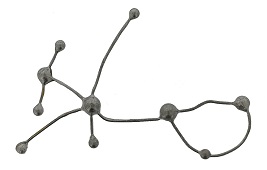Choice
This chapter is dull as ditch water, dry as the desert, but those that bear with it might see something in it that is quite startling. We make choices all the time. Lots of choices. What to eat. When to go to bed. Who to vote for. Now you can choose whether to skip this chapter or even bin the whole book. Does it matter how we go about choosing? Not really, but it gives us a remarkable insight into how basic we humans are.

Babies don’t do much more than eat, shit and sleep, but we as adults have moved far, far, away from that early stage. Or have we? It does appear that we turn into sophisticated animals. We can have multiple projects on the go. We deal with complex issues. We have experience and knowledge to make rational choices. However, the way we operate is not terribly complicated at all. We create pathways in our mind, simple ones that we follow over and over. When we analyse what goes on inside our heads, we can see how we arrive at a decision, we can see how we prioritise, and we can understand choice. Much of what we do starts with a seed, an idea, a piece of information. We then link more and more to that seed. These bunches of links, fretworks, dictate what we do, what we choose, and how we prioritise.
Most of what we hear goes in one ear and out the other, but sometimes a word triggers us to investigate more. Curiosity once again. Someone has mentioned skiing, and they have made the idea of going skiing sound appealing to you. That starts a sequence of events. You need to look at where you could go. How much money it would cost. What is the likelihood of breaking several bones and is there snobbery involved. Inside your head you place a seed: the desirable skiing trip. You add information to that seed as you go along. You look for the best ski resort within your budget. You work out when you can get time off work and investigate what equipment you would need to get. You also book some lessons prior. Now the fretwork is expanding in your mind. You might do all the preparation but not go in the end. The fretwork lingers, however. Any mention of skiing and you ponder about the trip you planned. Any sight of snow and you ponder about the trip you planned. The seed lingers. Lots of seeds linger, some get bigger, others fade. We add links. We move links. We change links. We alter the arrangement of links in our head. What I am saying is that your life is not much more than building and organising a bunch of links.
Copyright © 2003-2025. Ignorance Paradox all rights reserved. First published 2003. Updated 2025